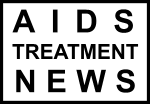"Distributing syringes to drug injectors had prevented at least 32,000 HIV infections and 100,000 hepatitis C infections across Australia in the past 10 years, new research has found.
"Harm reduction campaigner, Mr John Ryan, said the national Return on Investment 2 study showed that needle and syringe programs (NSP) had saved Australia $1.28 billion in health costs in the past decade years.
"The study was funded by the Federal Government’s Department of Health and Ageing. It was conducted by the National Centre in HIV Epidemiology and Clinical Research. The study will be launched on Thursday October 22 in Sydney.
"'Nationally, more than 32,000 HIV and almost 100,000 hepatitis C infections have been prevented by providing sterile syringes and counselling to injectors in the past nine years,' said Mr Ryan who is Chief Executive Officer of the Association for Prevention and Harm Reduction Programs Australia (Anex).
"Australia has one of the most extensive NSP networks in the world. It has one of the lowest HIV rates among injectors globally.
"'Only 0.1% of drug injectors are HIV positive, but 14% would be if there were not needle and syringe programs throughout thousands of places in Australia,' Mr Ryan said.
"Heroin remains the most commonly injected illicit drug in Australia, followed by amphetamines. The lower the HIV rate among injectors, the safer the general community was, Mr Ryan said.
"'This proves yet again that syringe programs protect the community and are excellent value for money. Total government funding for NSP nationally was only $27 million a year on average. But, that has saved taxpayers more than $1.3 billion since 2000,” said Mr Ryan. Distributing syringes to drug injectors had prevented at least 32,000 HIV infections and 100,000 hepatitis C infections across Australia in the past 10 years, new research has found.
"Harm reduction campaigner, Mr John Ryan, said the national Return on Investment 2 study showed that needle and syringe programs (NSP) had saved Australia $1.28 billion in health costs in the past decade years.
"The study was funded by Federal Government’s Department of Health and Ageing. It was conducted by the National Centre in HIV Epidemiology and Clinical Research. The study will be launched on Thursday October 22 in Sydney. ...
"The full report is called Return on Investment 2: evaluating the cost effectiveness of needle and syringe programs in Australia. It can be downloaded at www.anex.org.au"
Read more in Return on Investment 2 [large download], October 21, 2009.

0 comments:
Post a Comment